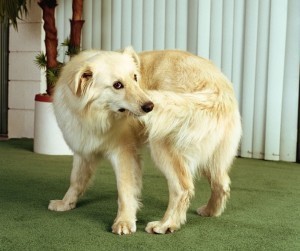
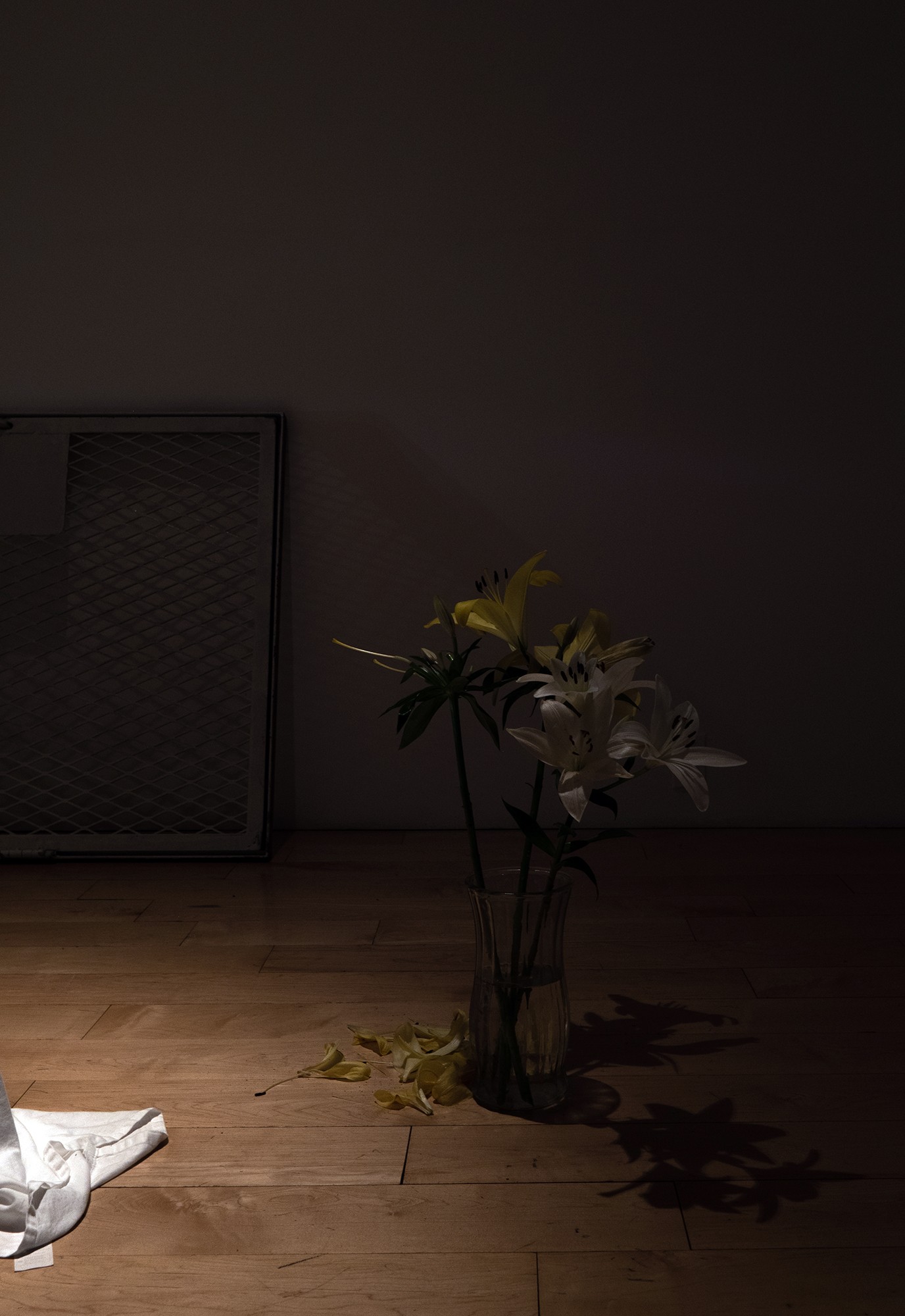
Dead End is a light, and sound installation by Ieva Lygnugarytė. Dead End seeks to address obsessive-compulsive disorder (OCD), something experienced by both humans, and dogs. Humans bite their nails, while dogs compulsively chase their own tail, unable to recognize it as a part of their body.
In Dead End the dog finally catches its tail; the act is suspended, but the residual angst remains. The sound piece featured in the installation was created using pre-recorded audio of footsteps. Sounds of walking, and running merge into a trance-like state that loops back and forth between subtly modulated intenities. In Dead End Ieva explores notions of linear thinking, progress (A leads to B) and how these ideas are often misleading, functioning merely as a means to an end. She employs iconographic imagery to induce feelings of anxiety. Could the cyclic nature of the dog biting its tail been merely as a repetitive action or a way out of dead end capitalism?
Dead End is accompanied by another work titled “night creature” – a bed sheet duvet cover set, produced by Videograms (created by Vladas Suncovas, Marek Voida, Viktorija Šiaulytė and Monika Lipšic). The duvet cover set was created as a conceptual form of bedroom architecture; using personal space, as a form of domestic teleportation. The desire to be transported into cinematic, virtual and imaginary worlds is cultivated by manipulating everyday objects relevant to contemporary dwelling. A diagram tic print functions as a map funneling ideas innovations, and teleportation channels represented through science-fiction, pornography, streaming devices, and images of visionary technology.
While Ieva Lygnugarytė’s work responds to the capitalist incentive to overproduce for the sake of material wealth, the bed sheet reacts to pandemic era circumstances in which prolonged confinement led to escapism via entertainment technology. Both works speak about exhaustion, fatigue and the search for an exit.
Whether it’s a dead end in a state of suspension, or living vicariously through moving images, and temporary shelters, the viewers may find themselves situated in a room where two unlike portals open up.
Edited by Xavier Mitchell
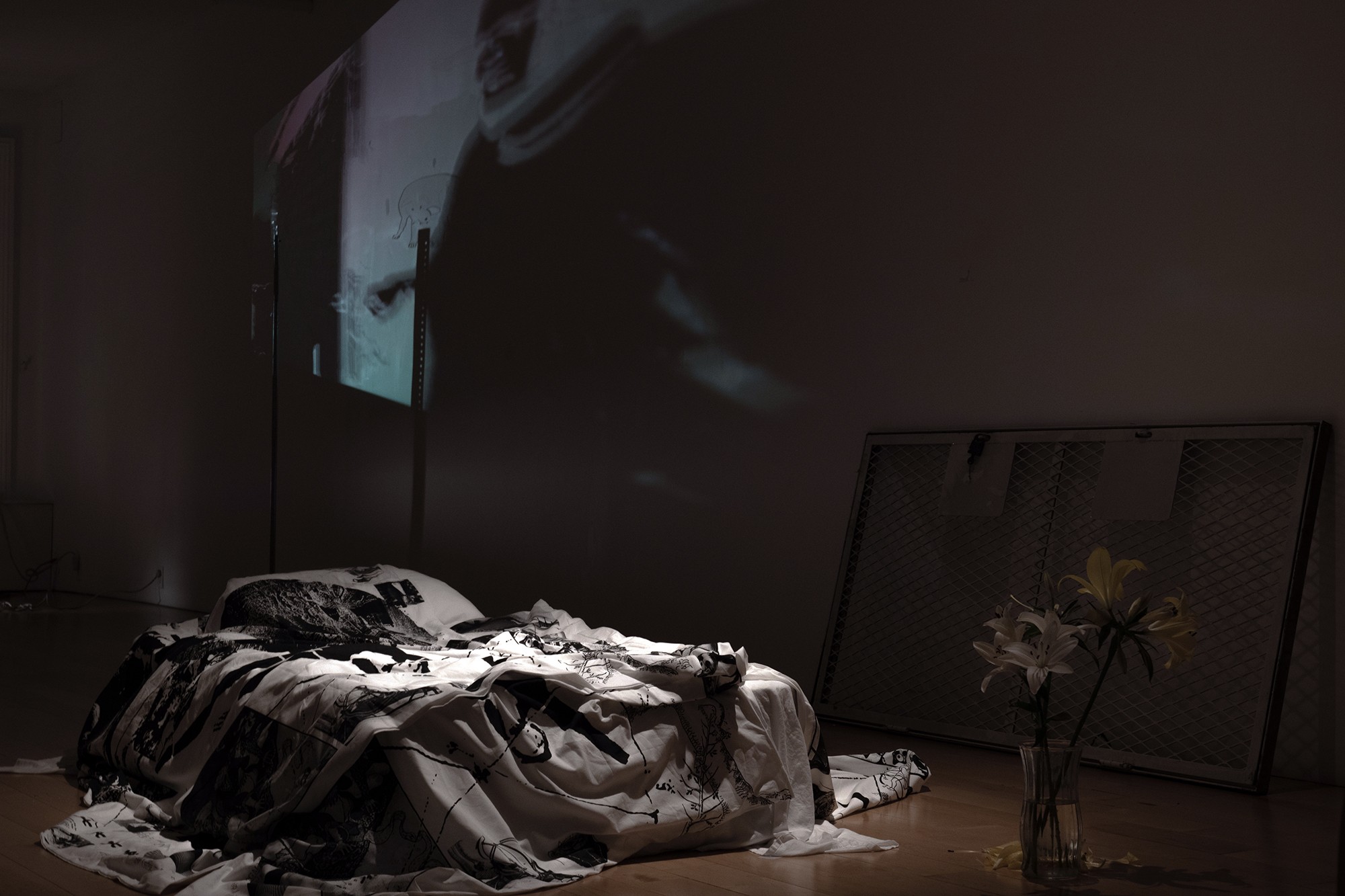
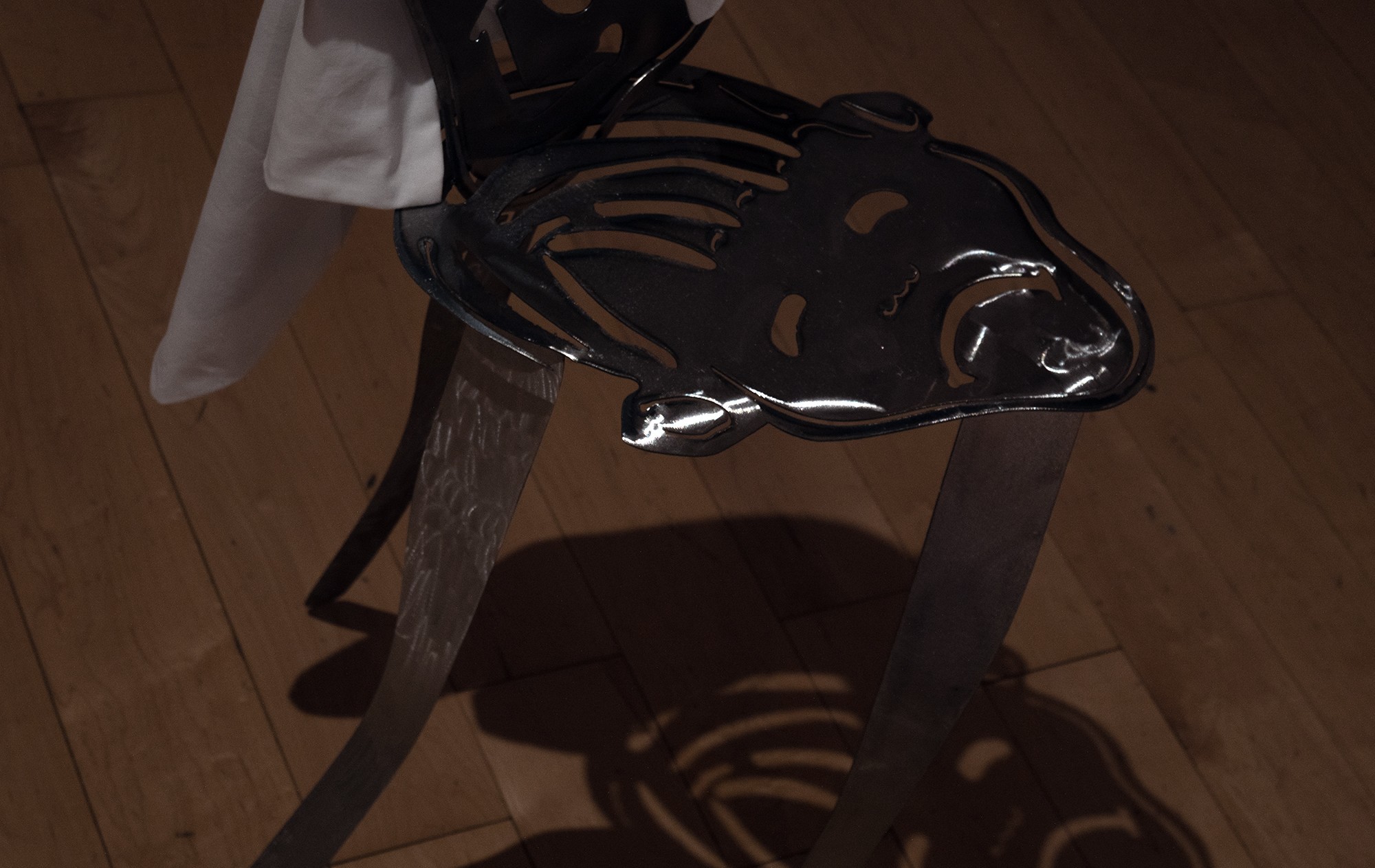
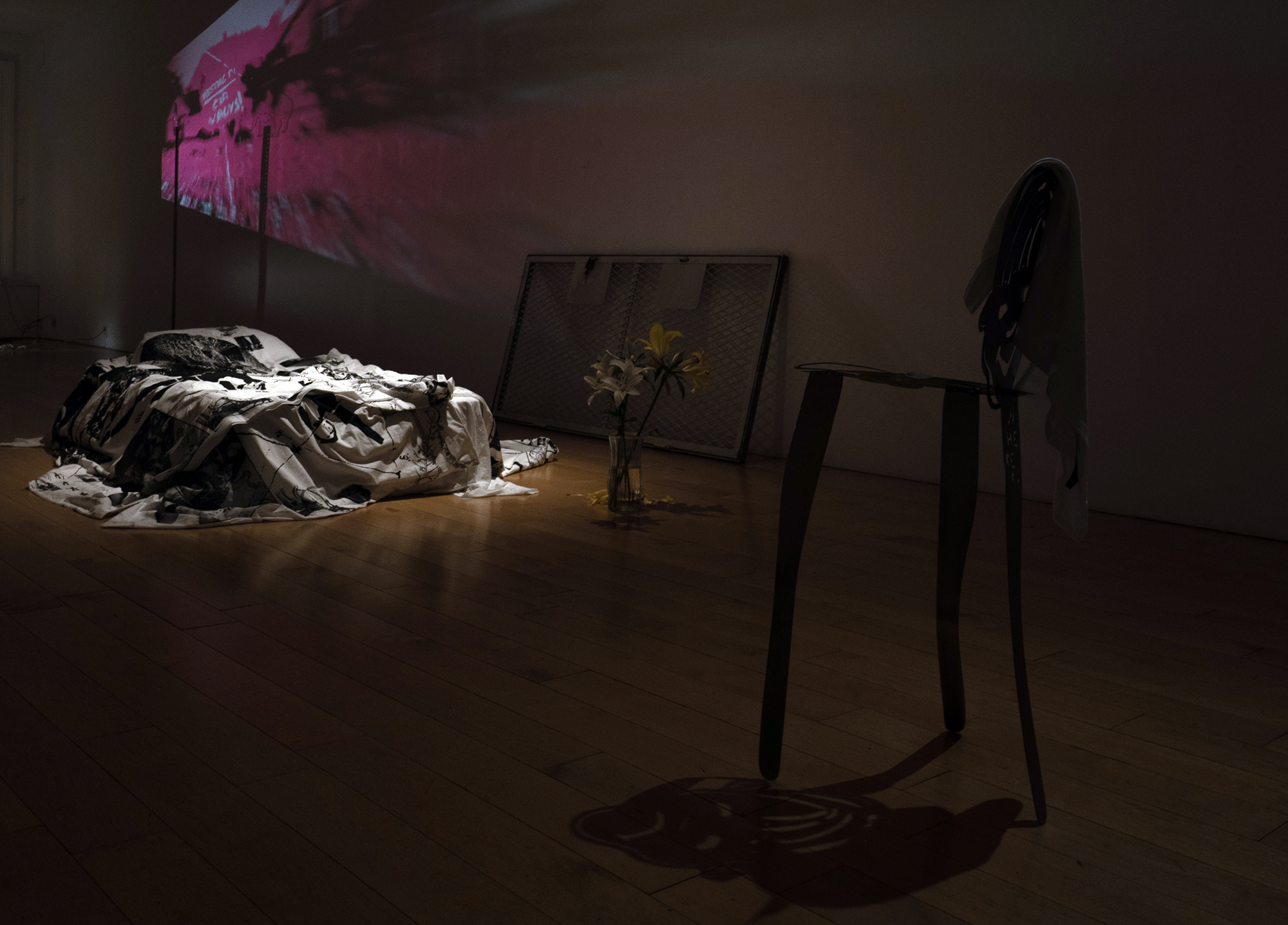
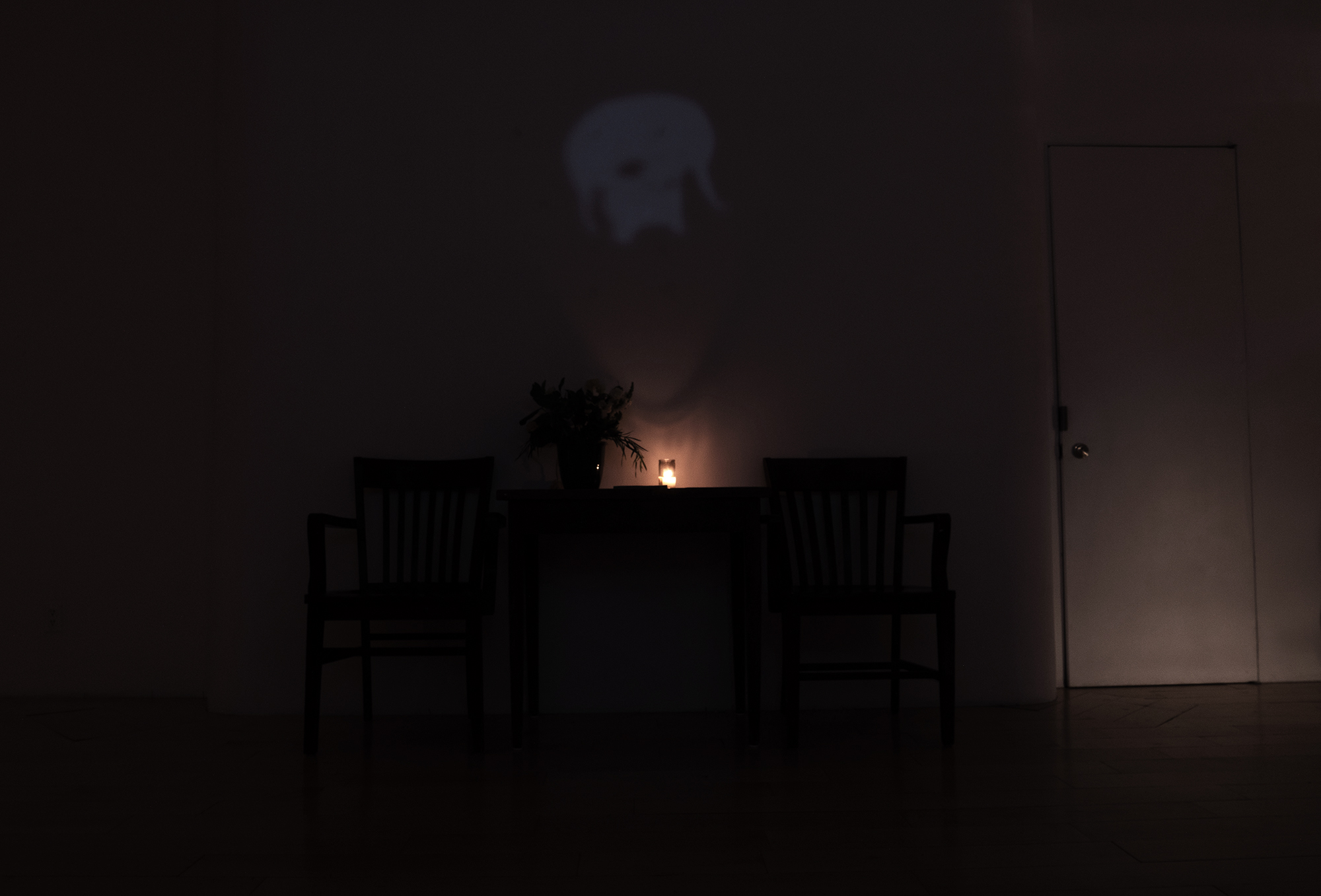
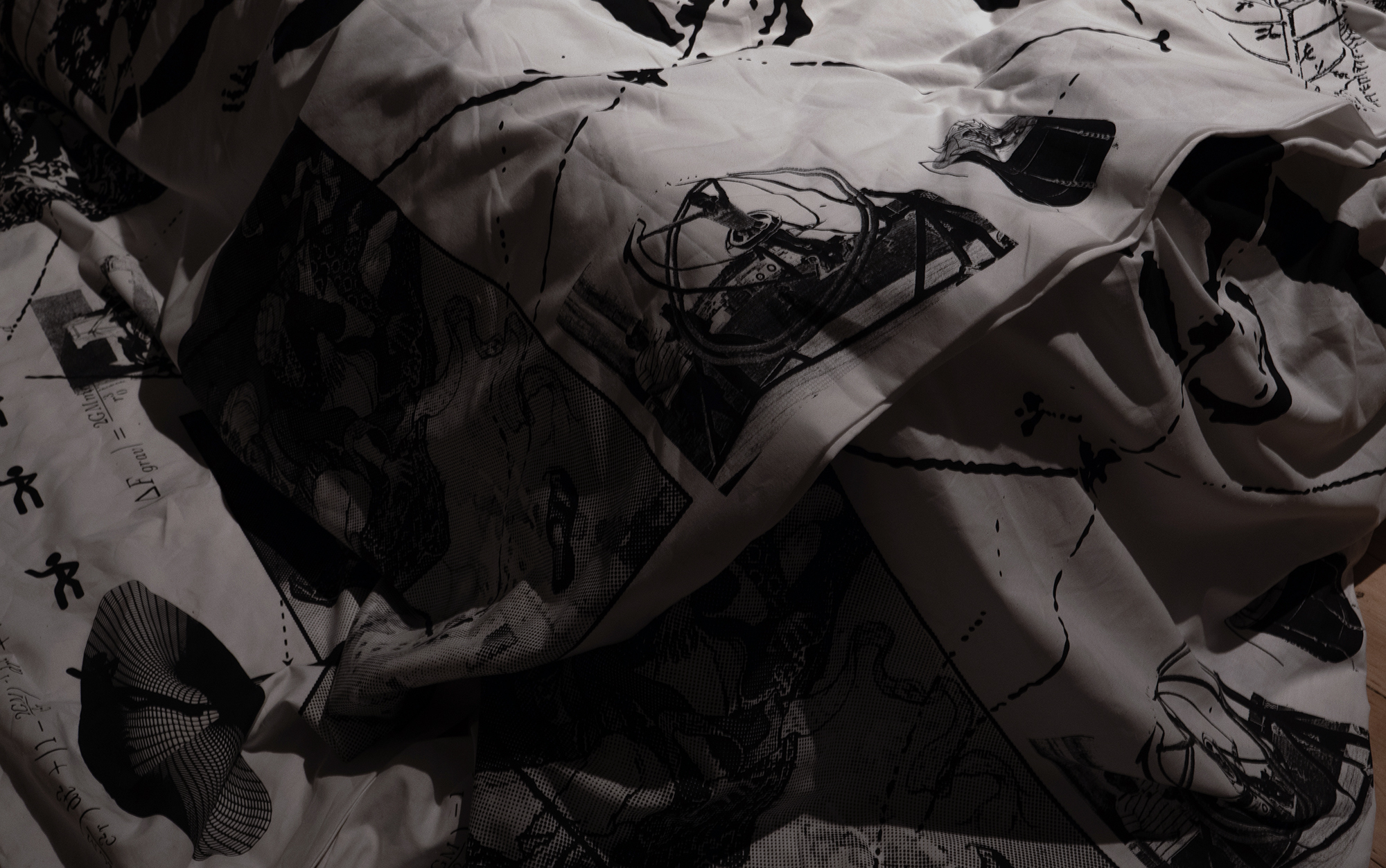
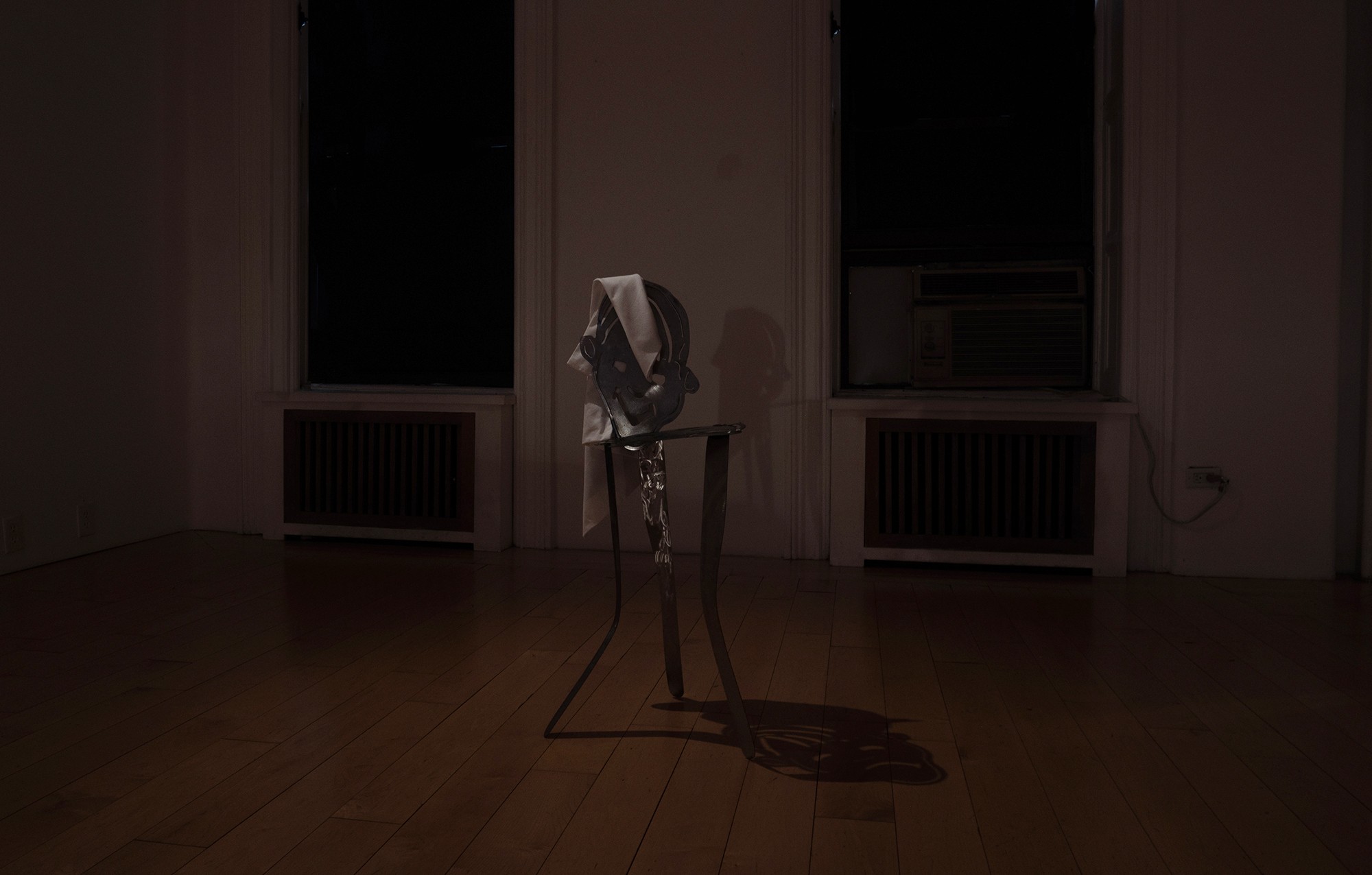
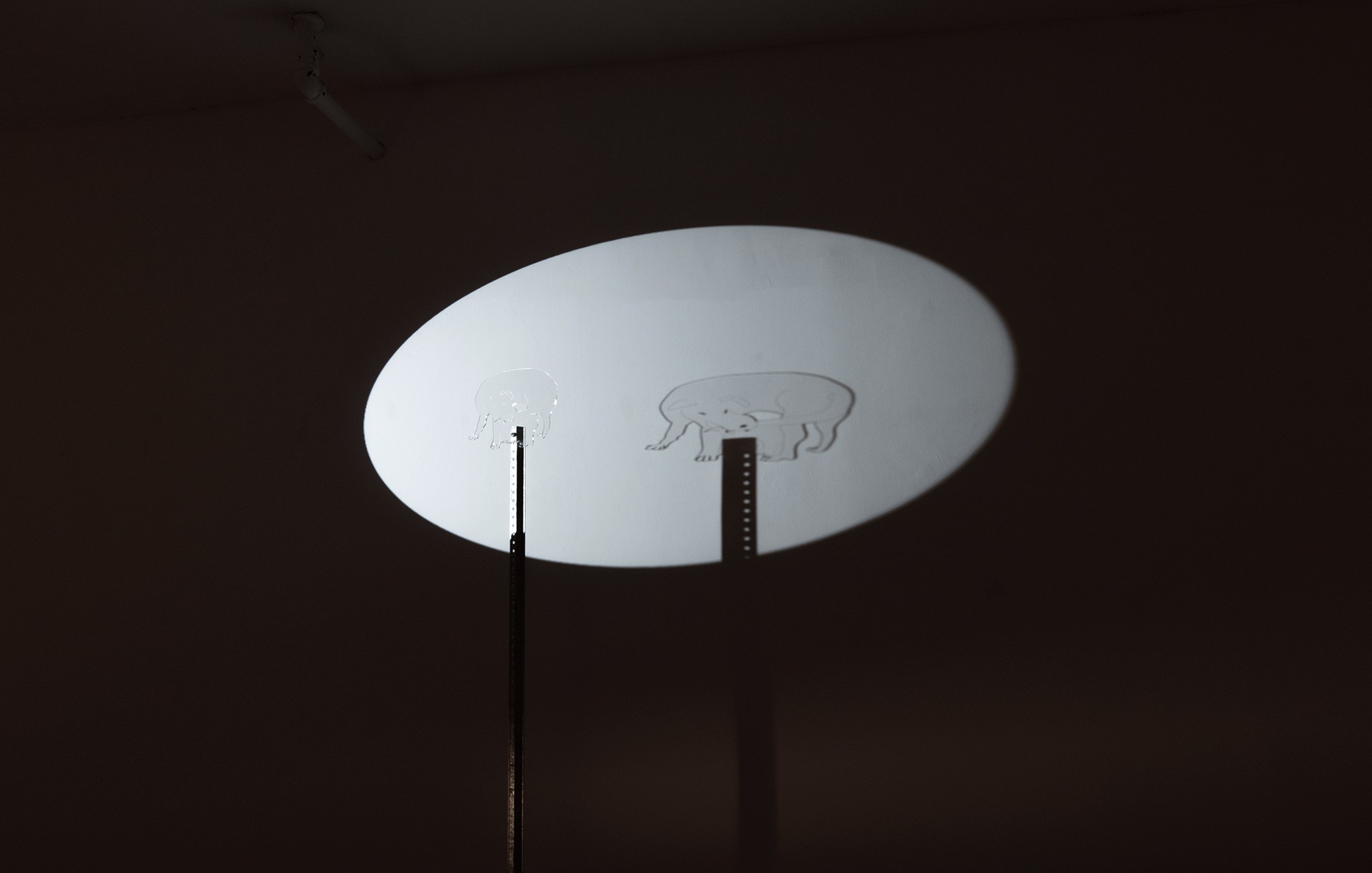
 Ieva Lygnugarytė (1998) is a transdisciplinary artist based in New York whose broad spectrum of work involves video, performance and installation. Ieva is currently working in an artist duo.
Ieva Lygnugarytė (1998) is a transdisciplinary artist based in New York whose broad spectrum of work involves video, performance and installation. Ieva is currently working in an artist duo.
